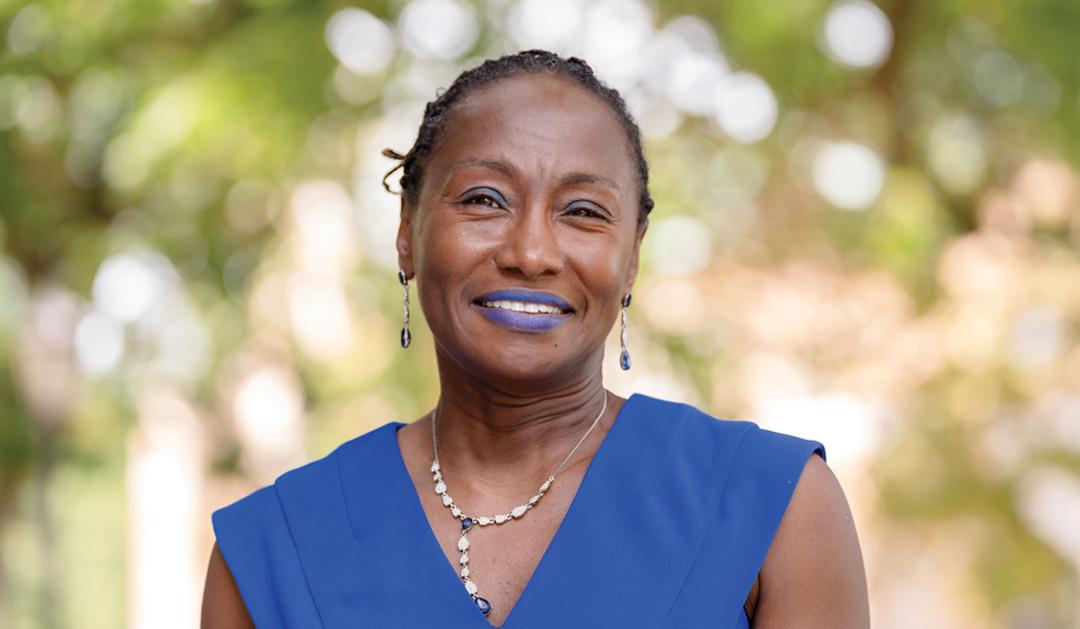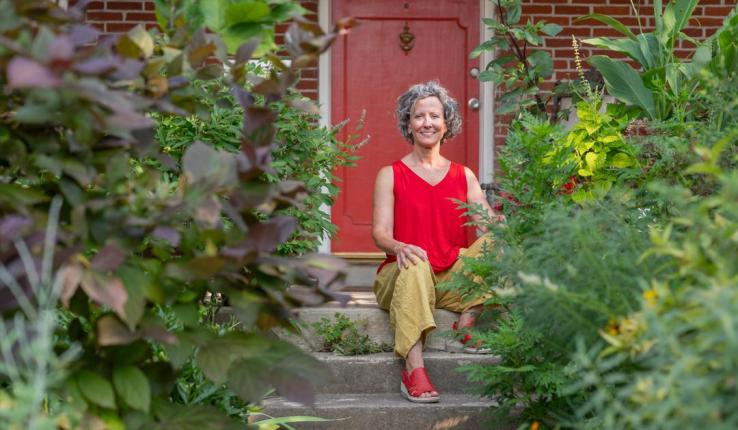You were awarded a scholarship to study abroad in Moscow where you stayed for six years. When did you go to Russia and what was that like?
I had the unique experience of studying in Moscow—the then Soviet Union—in the late 80s and was equally fortunate to witness the beckoning of a new era signaled by perestroika and glasnost. Studying in Moscow became a lived lesson in diversity and inclusion as the university that I attended, Druzby Narodof, enrolled more than 20,000 students from more than 100 foreign countries. While Moscow presented its fair share of challenges, including not being able to return home regularly to visit my parents, being exposed to and in close proximity with a multitude of people from different walks of life and backgrounds was familiar territory, having grown up in a multicultural, multiethnic Caribbean/Guyanese community.
What do you enjoy about comparative literature and diaspora studies? What is your current research focus?
Because of my lived experiences, I believe I was destined to be a comparatist, an interdisciplinary scholar of the diaspora; pursuing a Ph.D. in comparative literature seemed like a natural progression. This transdisciplinary positionality has afforded me the opportunity to engage the work of fellow literary theorists and critics, as well as the writings of sociologists, anthropologists, women, gender and sexuality studies scholars, scholars of cultural theory and critical race theory, among others. My research and teaching allow me to engage in reading and interpreting literature (and the world in general) from a diverse, transnational perspective; in my writing, the global south and the global north are conceptualized relationally, divesting these concepts of essentialist notions and hierarchical constructs. I am completing the article, “Daughterly Trans/Actions: Privacy, Intimacy and Self-Fashioning in Elizabeth Nunez’s ‘Anna In-Between,” editing “The Cambridge Companion to Colson Whitehead,” and working on two manuscripts. The first manuscript examines the relatability and relativity of otherness and in/difference in the writing of various diasporic authors, and the second, drawing on my lived experiences in Russia, examines the impact that censorship has had on a Black feminist consciousness.
What attracted you to Lehigh University?
As a research university that sees teaching as corollary to research, the goals of Lehigh align with my own research and teaching interests. Particularly attractive was the latitude and support for research, the embrace of interdisciplinarity and the opportunity to not only assist in growing the Africana Studies program—having served as Chair and Director of Africana Studies at Seton Hall University for several years—assuming the position of Director of Africana Studies at Lehigh affords me the opportunity to continue some of those initiatives and to embark on new collaborations, partnerships and challenges, but also to work alongside a dynamic group of scholars. Lehigh’s commitment to diversity and inclusion was an added incentive.
As the new Director of Africana Studies, what is your vision for the program?
One of my main goals is to raise the profile of Africana studies both locally and nationally. Implementing a study abroad to the Caribbean is a significant step in realizing this mission. As the incoming President of the Association of Caribbean Women Writers and Scholars, my goal is to host a conference on Caribbean feminisms/female leadership that will attract both local and national scholars, and a symposium on Colson Whitehead that will correlate to the “Cambridge Companion to Colson Whitehead” that I am editing currently.
Establishing an Africana Distinguished Lecture/Speakers Series that brings renowned scholars and writers to the campus that will engage both the campus and local communities is another goal of mine (this series will complement existing series). I am also looking forward to hosting a research associate who specializes in Black Britain under the theme, “Black British Literature: This is the Canon” in spring 2025. I envision the diversification of the Africana curricula through additional cross-listings and course offerings, new hires and broader partnerships, as a pathway to achieving departmental status. I am also looking forward to being more engaged and involved with various student organizations and establishing stronger relationships with our Africana alumni.
What advice do you have for students? Why should they study literature and Africana studies?
In a world that is becoming increasingly “smaller” due to global and transnational ties and alliances, I would advise students to resist one-dimensionality, to challenge themselves by moving beyond their comfort zone, to be tolerant and accepting of different viewpoints, even when they contradict their own beliefs and upbringing. The study of literature is a gateway to resisting homogeneity, to troubling and repudiating essentialism. Literature deepens our communication and critical thinking. It enriches our worldview and perspective, as it allows us access to different cultures, histories, religions and ways of knowing and being. A multidisciplinary and interdisciplinary field, Africana studies challenge Eurocentric paradigms through the study and exploration of the experiences of African and African-descended people across the diaspora. Its transdisciplinary foundation and focus that bridge the humanities and social sciences provide students with a wholesome and holistic outlook of the Black diasporic experience.





